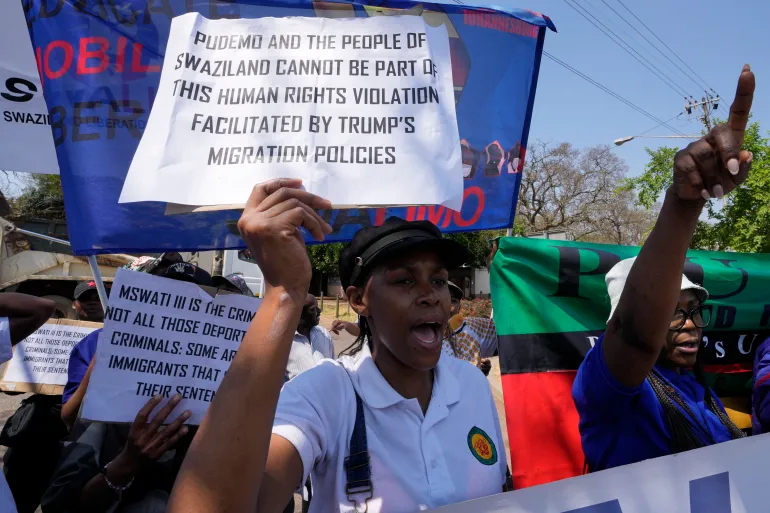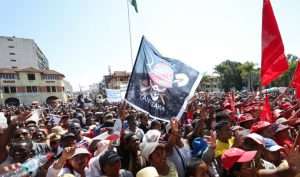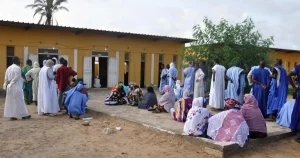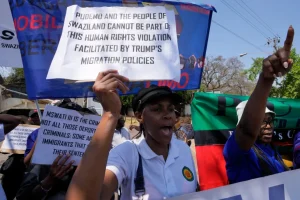Cuban man goes on hunger strike in Eswatini jail

A Cuban man who the U.S deported under the Trump administration’s third-country programme is on a hunger strike.
Held in a maximum-security prison in Eswatini, the man has been there for the past three months without being charged or given access to legal counsel.
According to Africanews via AP on October 22nd, Roberto Mosquera del Peral was one of five men sent down to the small country in South Africa earlier in July, as part of the U.S. deportation programme to Africa.

Since this programme has started, there has been criticism by rights groups and lawyers. They are unhappy with the programme’s protocols, with deportees being denied due process and exposed to rights abuses.
Mosquera was in a group of five men, including Mosquera from Cuba, and other men from Jamaica, Laos, Vietnam, and Yemen.
The Jamaican man, Orville Etoria, who was also deported, has been repatriated to Jamaica after spending two months imprisoned in Eswatini. Despite Jamaica’s willingness to accept Etoria’s return, he remained detained in Eswatini.
Legal experts argue the lack of transparency makes it a challenge to monitor whether deportees’ rights are being respected.
Civic groups in Eswatini have also taken legal action on authorities, in a bid to challenge the legality of detaining deportees in jail without a charge.
According to the U.S. Department of Homeland Security, the men being sent to Eswatini are criminals convicted of serious crimes, including rape and murder, and were living in the U.S illegally.
Mosquera’s lawyer is unhappy with how he is being treated and urges an update so he can report back to the Mosquera family, as he has now been on a hunger strike for a week. There are serious concerns about his health declining.
“My client is arbitrarily detained, and now his life is on the line,” said Alma David—Mosquera’s lawyer.
The Eswatini government confirmed early this month that it would receive 11 deportees under a reported $5.1 million arrangement that could see up to 160 people resettled or detained there.
A similar arrangement also occurred between the U.S and Rwanda, where up to 250 migrants may soon be sent to Rwanda.
David stated: “The fact that my client has been driven to such drastic action highlights that he and the other 13 men must be released from prison.”
Africa News via AP, Maghrebi.org
Want to chase the pulse of North Africa?
Subscribe to receive our FREE weekly PDF magazine














